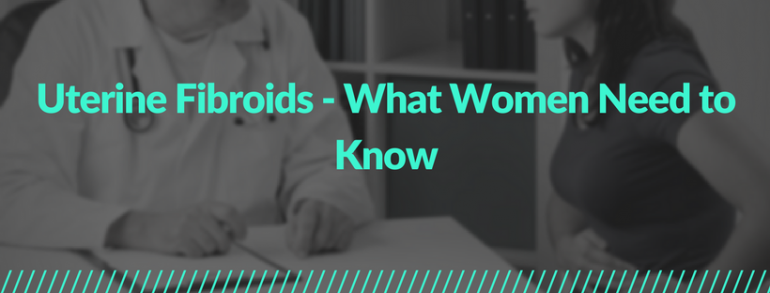Uterine Fibroids: What Women Need to Know?

Uterine Fibroid is the most common disease which is developed in about 20 to 80 percent of women by the age of 50 whereas 35 percent of women are diagnosed with this before they reach menopause. Fibroids can make the women feel very uncomfortable and often cause many complications depending on how serious is the case. In Pakistan, a large number of women are suffering from this disease. Among those, many of them are not even aware of this problem and hence not able to get it treated resulting in their health deterioration.
What are Uterine Fibroids?
The fibroid is the abnormal growth of the uterine tissues. It sometimes can cause severe pain in abdomen with heavy menstruation. In some cases, fibroids show no symptoms or pain at all. There can be a single fibroid in the uterus or many of them. Fibroids often vary in size; as small as an inch to the size of a rock melon.
Who gets it?
There are some factors that can increase the risk of getting fibroids in women. Among these, age plays a significant role. Women in their 30s and 40s are most likely to develop fibroids. After they hit menopause, fibroids shrink. Another factor is family history. If your mother had fibroids, then your risk of getting it is three times greater than average. Obesity in women can also increase the risk of developing fibroids.
Causes
The exact reasons of fibroids are not completely known but based on the study by World Health Organization (WHO), the growth is caused by the changing hormones in women and in some cases it is hereditary. Fibroids rarely happen before a woman start getting periods. It is usually developed during pregnancy and reduced in size after menopause.
Symptoms
Many women don’t show any symptoms of having fibroids. On the other hand, according to the National Institute of Health, women who suffer from fibroids start having heavy bleeding and pain during periods and extended duration of their menstruation cycle (more than 8 days). If not monitored, it can cause severe abdominal pain and frequent urination.
Diagnosis
Fibroid is usually diagnosed during routine checkups with your doctor, where the doctor examines the uterus and ovaries. In other cases, fibroid can be diagnosed with the help of various tests; ultrasound, Magnetic Resonance Imaging (MRI), Hysteroscopy and Laparoscopy.
Surgery / Medication to treat Fibroids
Usually, doctors give medication to treat fibroid. Medicines can stop fibroid to grow, but cannot completely cure it. You will require a surgery in a later stage of your life. There are two types of surgeries doctors recommend:
- Myomectomy: This type of surgery is done to remove fibroids without taking out the uterus. This surgery is advised to women who wish to have children after the treatment.
- Hysterectomy: This surgery is done when the size of fibroids is large and women are having severe health issues. As a result of this surgery, fibroids are removed along with the uterus. Women are not able to have children after undergoing a hysterectomy.
What happens if fibroids are not treated?
You should get yourself checked as soon as you start noticing symptoms of fibroids. In few cases, fibroids can grow in size resulting in abdomen swelling if not treated in time and hence need to be removed through surgery. Untreated fibroids could lead to infertility in some cases, but should be checked in detail before coming to any such conclusion.
Transparent Hands is a Social Enterprise that is empowering people to help others enjoy happy and healthy lives. It is a Global Crowdfunding platform that helps in conducting free of cost surgeries of underprivileged people in Pakistan. It has been able to conduct surgeries of over 200 patients so far out of which more than 15 were women who were suffering from uterine fibroids. Most of these women had undergone Hysterectomy and had their uterus removed completely. The throbbing abdominal pain and heavy bleeding is now a bygone memory of their lives.










ALL THANKS TO DR MAGANA.
For 10 years my husband and i tried ceaselessly to conceive to no avail.
The gynecologist told us that the Fibroid is causing difficulties and he
recommended a surgery. I love my life so much and i did’t want to undergo
any surgery because i was told it’s too painful and also there are 80%
chances of it growing back. I was discussing this with a close colleague
who told me how Dr magana helped her cousin cure fibroid and fallopian
tube blockage. I contacted him and he was so amazing with encouragements
and finally sent me a very effective medicine that changed my life for
good. It has been four (4) years now and i am still very fine and i have son i
call my own naturally. You too can reach him too on
maganasolutioncentre@gmail.com